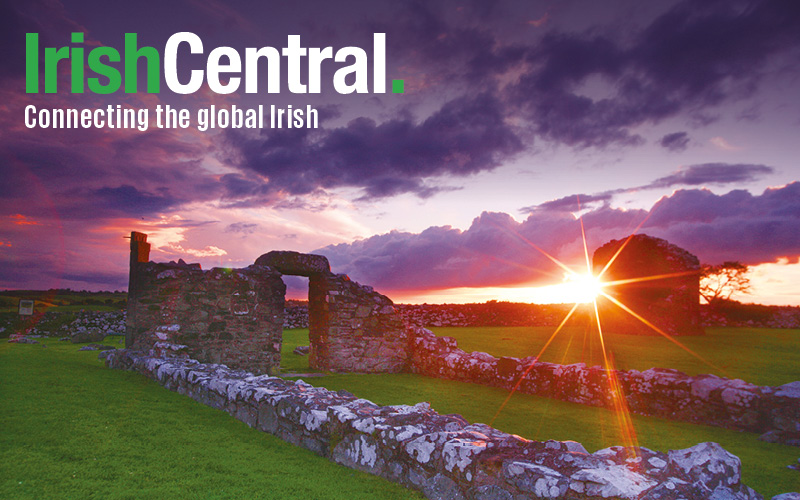Within a hundred feet of driving past the sign, I had a lump in my throat.
“Atlantic Farms is mourning the passing of our cow Annie,” it said.
Annie the cow was the largest member of the petting zoo that was docked to the shed where the produce and pies were sold at our local working farm.
According to newspaper reports, Annie the dairy cow lived to the ripe old age of 19, which would put her about two years older than my daughter Annie. We frequented that petting zoo all the time when both Annies were starting their lives.
We were often joined by my Irish-born mother and father, who were so thrilled to be grandparents for the first time that they promptly entered into semi-retirement so that their schedules could be cleared for any babysitting opportunities.
I have memories of my parents taking me to their own version of a petting zoo on a farm as well. They were the family homesteads of Ireland.
There was Granny Cleary’s house in Ballylanders, tucked in the shadow of the lush Galtee Mountains on a latitude closer to Tipperary than Limerick. The house was a simple grey square with an immaculate garden off to the side; blink and you would miss it all as you making a sharp turn on the narrow boreen.
My brother Brendan and I were reared in Jersey City and never saw livestock roaming the floors of our concrete jungle. We were told that the chickens pecking at the ground in Granny’s garden were getting ready to lay the eggs for our breakfast tomorrow, which increased our fascination with them exponentially.
My grandmother lived by the “waste not/want not” credo, so she kept a pail on the side of the cooker with every manner of leftover for the hens outside. I remember my brother and I watching impatiently as the pail filled throughout the day, and we fought fiercely over who grabbed the handle and who fed the chickens.
My aunt Anne was just a few years older than me and slightly jealous of the attention her mother was lavishing on the Yank grandkids. She would look at the fuss her eejit nephews would make over the hens and would wonder aloud which species had the most brains!
On one particular visit the cabinet under the sink was made into a makeshift incubator, and we squealed with delight when the turkey chicks hatched from their eggs. We fussed over them incessantly during our three week stay, feeding them by hand at times.
Sadly, it was all for naught. News came in an onion paper letter from Granny a few weeks later that the fox had claimed most of them shortly after they were allowed to follow their mother around the perimeter of the garden. We lost a whole weekend crying into our pillows over the news.
My Granny Farragher’s farm in Tuam was expansive, with all manner of livestock grazing in huge fields defined by a perimeter of mossy stone walls. My uncles didn’t have the time or inclination to give you a tour of the place.
When we asked to see the cattle up close we were led into the barn and placed on “the business end” of a cow as it gave up a calf from her belly. It was the most disgusting yet exhilarating thing I have seen before or since.
We would flinch as another calf protested loudly when Uncle Paddy would perform a cauterization that stunted the growth of the horns. I always remember him bowing his head slightly out of respect for the bull that looked on.
“Never turn your back on a bull,” he would say out of the side of his mouth as we sloshed through the muck in our new green Wellington “wellie” boots. We would all take turns riding Tom the old grey horse in the field near Granny Farragher’s house as the sheep sauntered and brayed all around us.
Alas, I am a narrowback Yank who has given my kids a pale fraction of the rich Irish memories of farming life that my brother and I were blessed with.
When my girls see sheep in a pen they instantly look for the nearby gumball dispenser of feed that gives up a handful of corn when you give up a quarter. Livestock on these Jersey farms seem nothing more than accessories trotted out to attract customers buying fresh baked goods and haunted hay rides.
Yet Annie the cow created a new crop of memories of my ancestors’ farming life for my next generation of Irish Americans, who squealed with delight when the cow stuck out her freakishly long tongue to receive the sweaty handfuls of carrots and corn my daughters had to offer her.
May she rest in peace.
(Mike Farragher’s essays can be found on www.thisisyourbrainonshamrocks.com)




Comments